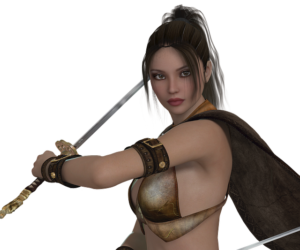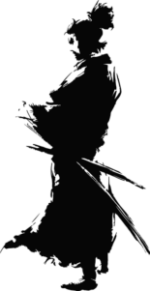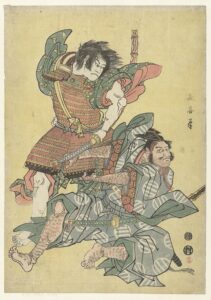 In his Fourth Book, The Book of Wind, Musashi concludes by stressing the traits of a warrior. Applied to the trial lawyer these traits are:
In his Fourth Book, The Book of Wind, Musashi concludes by stressing the traits of a warrior. Applied to the trial lawyer these traits are:
Lack of Pretense. The trial lawyer is without pretense. The trial lawyer is engaged in a career long quest to develop his spirit in the proper manner. Musashi’s, Book of Five Rings (Translated by Stephen Kaufman, Hanish 10th Dan) (1994) at 83-84. His commitment is to his cause rather than to himself. The trial lawyer “does not go around telling everyone he is a great [trial lawyer]. He permits his actions to govern others’ responses.” Id. at 92.
Study Others-Be Yourself. Musashi teaches the importance of understanding the “reasons and philosophies of other systems” to benefit from our own. “Without comparison you have no reference point with which to judge for yourself and decide how to properly develop your own self.” Id. at 84. We should study other trial masters to reinforce our understanding of ourselves. In this way we constantly reevaluate ourselves. Remember though to be yourself. When we change our methodology because of others we lose ourselves. “Eventually you are going to have to come back to your natural state. So why leave it in the first place?” Id. at 96.
The Big Picture. Always take the broader view of the situation. “Do not concentrate on details. Keep only one thing in mind: that thing is to beat your enemy. In this way your spirit will continue to grow and you will always be conscious of your surroundings and the situations that appear.” Id. at 95. When we are aware of all possible outcomes we “may not even have to do battle because of superior intelligence based on perception and intuition. It is possible to win a fight without ever having to go into combat.” Id at 93. This occurs when the trial lawyer knows the strengths and weaknesses of her case and is known by the opposition to try her cases.
Quickness over Speed. Trials are competitions. In any competition rhythm and timing are essential. Musashi recognizes this and stress quickness over speed. “Quickness gets inside of speed and enables you to control the situation… . When you advance, … advance quickly and get immediately to the point. Your speed is dependent on the speed of your [opponent]. … [A]djust yourself accordingly and do not think in terms of being faster and slower. … [I]f you are constantly moving fast you will have no time to maintain your poise and timing.” Id. at 97. “Always move naturally and calmly… .” Id. at 98. Quickness in trial happens when we focus on the present as in the words and body language of the jury in jury selection and the witness during testimony. Rather than concentrating on prepared notes live in the moment of the trial.
Trial Lawyer as Warrior. In today’s legal climate the Gerry Spence metaphor of the trial lawyer as a warrior is apropos. Insurance companies rely on lawyers unwilling to try their cases. Insurance companies base low offers on this reliance. In Musashi’s time it took a warrior to get justice for the weak. In today’s economic climate it takes a lawyer willing to file his case and prosecute it through a jury trial to get justice for the injured. When the insurance company sees such a lawyer they often pay fair value “because they would prefer to fight someone else.”
Post Footer automatically generated by Add Post Footer Plugin for wordpress.

 In Musashi’s third book, The Book of Fire, Musashi concentrates on the spirit of the warrior/trial lawyer:
In Musashi’s third book, The Book of Fire, Musashi concentrates on the spirit of the warrior/trial lawyer: With Musashi’s second book, The Book of Water, I continue with the warrior/trial lawyer metaphor:
With Musashi’s second book, The Book of Water, I continue with the warrior/trial lawyer metaphor: Gerry Spence
Gerry Spence 